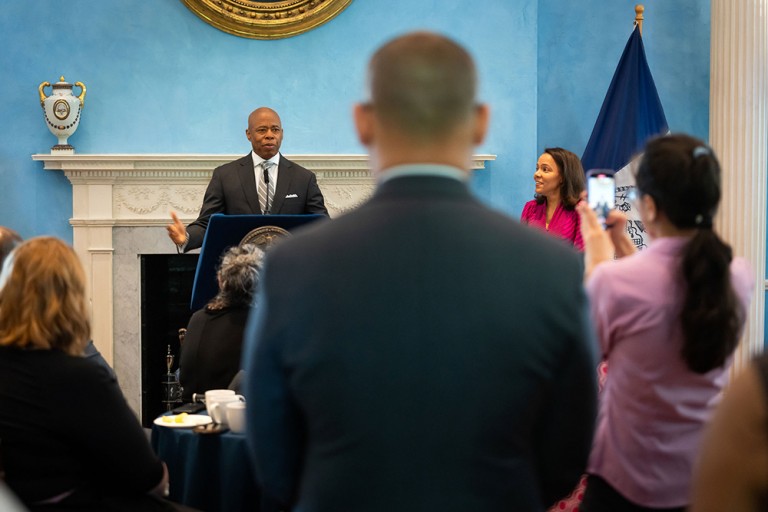By Michael V. Cusenza
Mayor Eric Adams recently released released the following statement after the City Council Subcommittee on Zoning and Franchises and New York City Council Committee on Land Use both voted to approve Mayor Adams’ “City of Yes for Economic Opportunity” proposal.
“When we came into office two years ago, we had a mission: protect public safety, rebuild the economy, and make this city more livable for working-class New Yorkers. Today’s votes advancing the ‘City of Yes for Economic Opportunity’ out of the City Council’s Zoning and Land Use Committees are important steps towards achieving these goals. This historic initiative will remove outdated limitations on businesses and ensure that local retail streets and commercial centers across the city remain lively places that sustain our neighborhoods. I want to thank Speaker Adams and Chairs Riley and Salamanca for their dedication and collaborative effort to make thoughtful modifications that balance public input while maintaining the purpose and intent of the proposal. We urge the full City Council to adopt these regulations in the coming weeks.”
In June 2022, Adams laid out a proposal to use the City’s zoning tools to support small businesses, create affordable housing, and promote sustainability. The vision includes three major citywide amendments: Zoning for Economic Opportunity, Zoning for Housing Opportunity, and Zoning for Zero Carbon.
“We are going to turn New York into a ‘City of Yes’ — yes in my backyard, yes on my block, yes in my neighborhood,” Adams said. “These proposals focused on economic recovery, affordable housing, and sustainability will remove red tape for small businesses, expand housing opportunities in every neighborhood, and accelerate the transition to our energy future. New Yorkers are not going to wait around while other cities and other countries sprint towards a post-pandemic world, and now we won’t have to.”
The first citywide text amendment — Zoning for Economic Opportunity — will provide local businesses with the flexibility to repurpose their space for a post-pandemic city, Adams said. According to Hizzoner, the amendment will:
- Remove unnecessary geographic limitations on certain businesses, including life sciences, custom manufacturing, maker-retail, and nightlife;
- Eliminate obstacles to repurposing space, allowing the city’s businesses and economy to evolve over time; and
- Create flexibility for local businesses to expand without relocation and without triggering needs for additional parking.
“It’s crucial for us that New Yorkers know that zoning laws can restrict housing supply. We have a 1 percent housing vacancy rate and when you look at affordable housing, it’s down to almost zero. We know that if we innovate, we can continue to expand and grow as a city, but it also is an opportunity for us to see what opportunities are still out there and attract new businesses to the city,” Adams said.
The mayor characterized his plan as “a set of 18 zoning changes that would update decades-old zoning codes. It will modernize regulations in an effort to support new business and create jobs. It will help revitalize commercial corridors, build vacant storefronts and boost our economic recovery across the board.”

